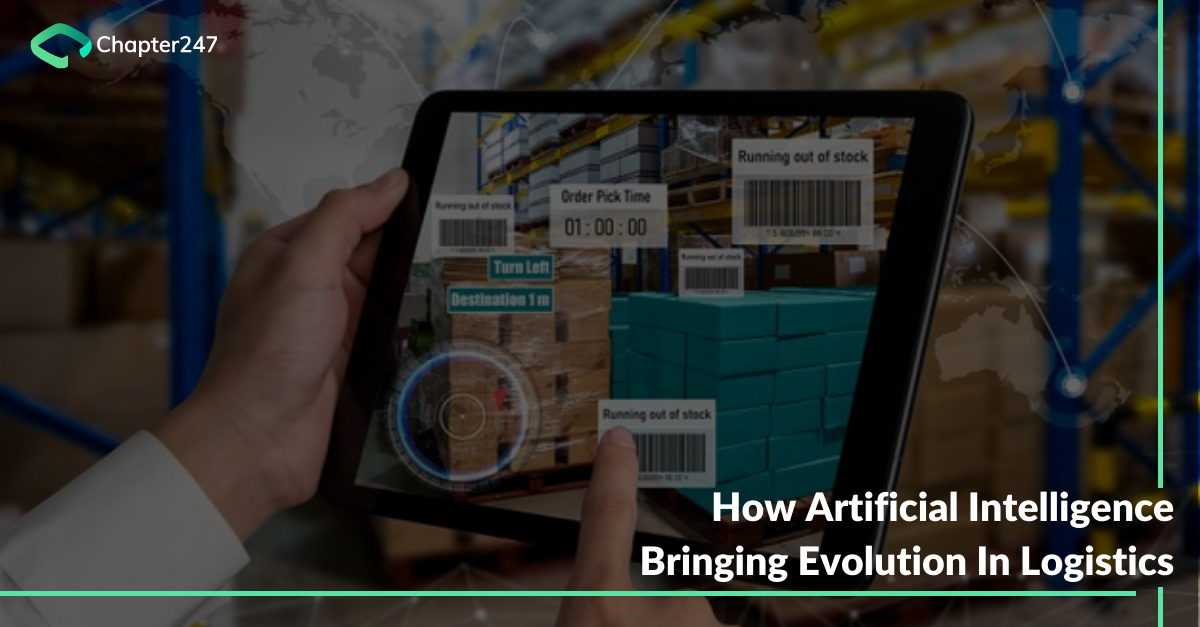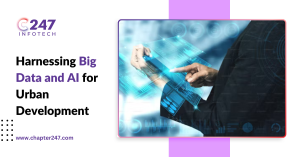Artificial Intelligent is nothing new, but it sure has come a long way. One could never have imagined an existence without pilotless aircraft, driverless cars, or the predictive capabilities of AI. But the evolution of technology AI has evolved into a mammoth, integral, and an omnipresent element in our lives.
Its use in different industry sectors has been unparalleled. With its spread of use already recorded in several industries, Logistic and AI also have shared a strong bond.
Forbes Insights research has announced that close to 65% of senior transportation execs claimed that with AI, there can be a major upheaval in logistics, supply chain, and the overall transportation processes. Another study by McKinsey & Co. also found out that a proactive AI strategy in logistics will enable organizations to enjoy better profit margins.
One thing is for sure!
AI is here to stay but it is important to note this journey which is what this blog intends to do.
The earlier version of AI
John McCarthy from Stanford Computer Science coined the term Artificial Intelligence more than 50 years ago. AI has ever since evolved to towering heights with its ability to learn from experience, perform tasks like humans, and also imbibing new inputs. It is thus the machine’s ability to sense, process, and take decisions about the world around it.
Over the years a number of logistics applications have used AI. The tracking of rail, data, and ocean transportation networks was always done via a satellite but data has not been properly utilized till now. The analysis was always faulty due to the lack of availability of clean data. But now, there is the presence of more data along with massive computing and algorithms to evaluate data and results.
The used cases of AI in logistics
Skyrocketing of Predictive capabilities of AI
The potential of Artificial Intelligence solutions is seriously ramping up the loopholes in generating predictive demand figures and network planning. Companies now can be more proactive because this tool lets them make almost accurate demand forecasting and capacity planning. When they are aware of such data they can reduce the requirement of vehicles needed for transport and reschedule them into areas where the demand is more. This goes a long way in reducing operational costs to offer the best deal to the clients. AI uses the data to anticipate events, avoid risks, and create solutions. Resources can be modified to avail maximum benefits.
Leading the change with DHL example – A real-life scenarioDHL had released its report on AI in which it claims to have developed an ML-based tool that would predict air freight transit delays so that proactive measures can be taken to mitigate it. Thanks to the data generated, it started its analysis on 58 different parameters with which ML is able to predict the average transit time for a given lane. With AI’s data-crunching capabilities and superior algorithms, AI had successfully identified the inefficiencies in cargo movement around the world. |
Predictive analytics solutions in logistics and supply chain have increased. While AI solutions are available by well-experienced custom software development companies, there are yet many entities that are not able to afford data science professionals to develop such tools. But other players can also benefit from AI predictive capabilities with our AI capabilities. A holistic AI analysis also is beneficial to safeguard risks. DHL does a world of good by monitoring 8 million online social media posts to identify supply chain issues. With the help of ML and NLP sentiment analysis can be done to identify the shortages.
Robotics
The conversation around AI is incomplete without talking about robotics. Even though it is a futuristic concept the supply chain is already using it. They are intensively used to track, locate, and transport inventory within the warehouse. Robots have deep-learning algorithms that make independent decisions regarding the various processes performed in the warehouse.
Automated Warehouses
AI also has proven its true mettle in transforming warehousing operations like collecting information and analyzing it for inventory processing. AI helps in increasing operational efficiency. It gauges the demand for certain products and based on that it delivers products in demand to the selected regional warehouse reducing the case of middlemen and transportation costs. Nearly 30% of warehousing tasks in the next few years can be totally automated. AI will be an ideal tool to complete routine tasks.
| Ocado’s Hive Grid Machines – futuristic AI The famous online supermarket of Great Britain used the concept of an automated warehouse. It has a Robot called ‘hive-grid-machine’ that fulfills 65,000 orders in one week that replaces 3.5 million grocery items. These robots lift, move, and sort items. After that the human team of the store packs and sends orders. Not only the time is saved but also costs are reduced! |
Automated warehouses use computer vision that allows recognizing and organizing items. In the future, this technology also is touted to manage quality control which is a huge thing.
Autonomous Vehicles
Self-driven vehicles have brought about a paradigm shift in the supply chain and reduce expenses in logistics. Trucks, vans and even buses used for transport can be automated which can work alone or would require very little manpower to transport goods. Although such technology is available, governments of different nations deem it necessary for a human driver to be there for safety reasons.
Roads can be smart too
AI in logistics also is helping companies to work on building smart roads. We have seen the use of solar power panels and LED lights. Such initiatives can produce cheaper forms of electricity or make use of colorful lights in order to focus the driver’s attention to changing road conditions. The presence of smart solar panels also enables self-healing mode that heats up the road to make it less slippery.
Smart roads are definitely useful for logistics as there are few or no delivery delays in the supply chain due to harsh weather conditions.
The Integrated roadways – a company famous for creating the Smart pavement system has incorporated some great features. It can connect cars on the road with the internet. Drivers can also possess real-time information on traffic jams, accidents, and so on. Detailed navigation with the accurate position of each vehicle also can be dissected by such AI solutions.
Renewing back-office operations with AI
Paperwork and number-crunching are a major part of the entire scheme of operations in the logistics sector. AI and RPA(Robotics process automation) let the workers speed up their work. For instance, regular data-related tasks that are repeated every day can be automated. Cognitive automation was a result of the melding of AI and RPA. Companies can increase productivity, improve accuracy, and also save time. This technology helps in reduction in human errors as it eliminates the hiring of humans for such jobs.
Big Data
AI is not just about Robotics but its component the Big Data is also letting logistics companies optimize future performance. Big Data backed by AI provides great insights that can go about improving different facets of the supply chain including route-optimization, transparency, and so on. Getting clean data has indeed become an important step as companies are able to have fine figures to implement. Sometimes the data from varied points and people become difficult to identify. AI also solves this by analyzing historical data, identifying the loopholes, and improving data quality improving overall operations and transparency.
For instance if your logistics company has insufficient or incomplete shipment data, AI can easily go through the data of past shipments to deduce accurately the gap in the quantity required. These AI-powered algorithms only require 5-10% accurate data to produce a training dataset helping them offer an accurate estimate of the shipment properties like whether the vehicle is going full or empty.
Benefits at a glance
AI offers a boost in productivity – With AI in supply chain management, evaluation of performance and coming up with factors that impact it can be easy to generate. AI combines its capabilities with other technologies like reinforcement learning, unsupervised learning, and supervised learning.
Assists in demand forecasting – AI makes it possible to measure and track all the factors that can work towards offering better precision in demand forecasting. Real-time sales, weather conditions, and more information can be accessed with the help of automated sorting, warehouse management, and automated management of inventory systems.
Improving the selection supplier – AI can easily analyze databases related to supplier audits, credit scores, and deliver information that can be used to make future decisions. This will help companies make better decisions.
Better Factory scheduling – With AI solutions companies can now augment their factory scheduling and production planning. They can deeply analyze different issues and look to create measures that can optimize them. AI sure has the power to balance constraints that work well for build-to-order setups.
Right decision making – With AI, the freight transport system can easily make use of its prediction concepts to ascertain situations about the volume in order to ease out the transport planning. Companies investing in AI can help companies in the future in a better way.
Final Word
There is no doubt that the evolution of AI in logistics has been a learning journey. The technology has increased the effectiveness and accuracy of logistics operations. AI allows automating time-consuming tasks decreasing final costs.
If you are looking at custom-built AI solutions for your enterprise in the Logistics sector, it is now the right time to become efficient in all aspects.







